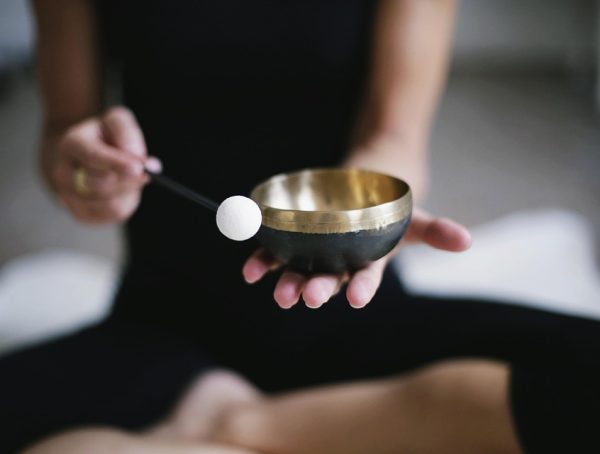Boost Your GPA: The Positive Effects of Meditation on Learning
In a world driven by high expectations and intense competition, students are constantly searching for ways to enhance their academic performance. With the pressure to maintain a high GPA, students often resort to late-night study sessions, cramming for exams, and endless coffee consumption. However, there is an age-old practice that can significantly improve your learning capabilities and overall well-being: meditation. This article explores the positive effects of meditation on learning and provides actionable steps to incorporate this powerful tool into your daily routine.
The Science Behind Meditation and Learning
Meditation, often associated with relaxation and mental peace, has been shown to have a plethora of benefits, particularly concerning cognitive function. Research has consistently demonstrated that meditation can improve focus, enhance memory, and increase emotional intelligence—all crucial skills for academic success.
-
Increased Focus and Concentration: Regular meditation practices have been shown to enhance attention span. According to a study published in "Cognitive, Affective, & Behavioral Neuroscience," participants who engaged in mindfulness meditation exhibited improved concentration levels compared to those who did not. Improved focus allows students to engage more effectively with their study material, leading to better retention of knowledge.
-
Enhanced Memory Retention: One of the challenges students face is remembering vast amounts of information. Meditation has been linked to better memory retention and recall, helping students process and retain what they learn. A study from the University of California, Santa Barbara, found that students who practiced mindfulness meditation performed better on memory tasks than those who relied solely on traditional study methods.
- Reduced Stress and Anxiety: The academic landscape can be overwhelming, leading to increased pressure, stress, and anxiety. These feelings can hinder learning and negatively affect GPA. Meditation offers a powerful antidote by calming the mind and reducing the production of stress hormones. A research study published in "Psychological Science" noted that those who practiced mindfulness experienced a decrease in anxiety, resulting in improved academic performance.
Action Steps to Incorporate Meditation into Your Routine
Feeling inspired? Here are actionable steps you can take to integrate meditation into your daily life and potentially boost your GPA:
1. Start Small
Begin with just five minutes a day. Find a quiet space, sit comfortably, and focus on your breath. Inhale deeply through your nose, and exhale through your mouth. This simple practice can set a calming tone for your day, helping you approach your studies with a clear mind.
2. Use Guided Meditations
For beginners, guided meditations can provide structure and support. There are numerous apps and YouTube channels dedicated to meditation. Consider trying apps like Headspace or Calm to help you get started with gentle, guided meditations that focus on stress reduction and focus.
3. Schedule Regular Sessions
Like any habit, meditation benefits from consistency. This means finding a specific time of day when you can commit fully; whether it’s in the morning before classes, during lunch breaks, or in the evening before bed, ensure you prioritize meditation as part of your routine.
4. Experiment with Mindfulness in Daily Activities
Meditation doesn’t always have to take place in a formal setting. You can incorporate mindfulness into your daily activities. While walking to class, focus on the sensations of your feet touching the ground or listen to the sounds around you. This practice can improve your focus and presence, translating to better learning outcomes.
5. Use Meditation to Prepare for Study Sessions
Before you dive into studying, take a few moments to meditate. Visualize what you aim to learn, set intentions for your study session, and cultivate a positive mindset. This can create a productive atmosphere, allowing you to approach your studies with a refreshed perspective.
6. Practice Gratitude
Consider incorporating gratitude into your meditation practice. Spend a few minutes reflecting on what you are thankful for. This positive mindset can enhance your overall well-being, reduce stress, and motivate you to strive for academic excellence.
The Takeaway
As students juggle the pressures of their coursework and personal lives, meditation offers a viable solution to improve focus, enhance memory retention, and reduce anxiety. By taking small steps to incorporate meditation into your daily routine, you can optimize your learning experience and potentially boost that GPA.
Cultivating a meditation practice not only aids in academic endeavors but also promotes a healthier, more balanced approach to life. With consistent practice, you might find that the benefits extend beyond the classroom and influence various aspects of your daily routine, setting the stage for a more fulfilling life.
Inspirational Quote
"Your mind is a garden, your thoughts are the seeds. You can grow flowers or you can grow weeds." – Jack Canfield
If you found this article helpful, consider following Kevin on Instagram (@KSteineman) for more tips and insights on personal development and academic success!
You might also like
More from Meditation
The Role of Mantras in Transcendental Meditation: A Deep Dive
The Role of Mantras in Transcendental Meditation: A Deep Dive Transcendental Meditation (TM) has garnered a significant following across the globe, …
The Science Behind Meditation: Improving Mental Health Naturally
The Science Behind Meditation: Improving Mental Health Naturally In today's fast-paced world, the pursuit of mental wellness has become paramount. Thousands …
Understanding the 7 Types of Meditation for Beginners
Understanding the 7 Types of Meditation for Beginners: A Path to Inner Peace Meditation has become a popular practice in recent …


































